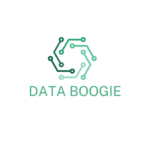Big Data Cloud Computing
- Integration of Big Data and Cloud Computing: Big data cloud computing combines large-scale data processing with cloud services, offering scalability, flexibility, and cost-effectiveness for organizations handling massive datasets.
- Essential Technologies: Key technologies include cloud storage solutions (e.g., Amazon S3, Google Cloud Storage) and data processing frameworks (e.g., Apache Hadoop, Apache Spark) that enhance data management and real-time analytics capabilities.
- Advantages of Cloud-Based Solutions: Major benefits include the ability to scale resources dynamically, cost-effectiveness through pay-as-you-go models, and reduced capital expenditures, allowing organizations to focus on growth and innovation.
- Security and Compliance Challenges: Data security concerns and integration issues are prominent challenges. Implementing robust security measures and ensuring compliance with regulations like GDPR and HIPAA are crucial for protecting sensitive information.
- Emerging Trends: Future trends such as AI integration, edge computing adoption, enhanced data privacy regulations, multi-cloud strategies, serverless computing growth, and a focus on real-time analytics indicate the ongoing evolution of big data cloud computing.
- Data Democratization: Initiatives that promote self-service analytics empower employees, fostering a data-driven culture that enhances productivity and informed decision-making.
In today’s data-driven world, big data and cloud computing are reshaping how businesses operate. As organizations generate vast amounts of information, the need for efficient storage and processing solutions has never been greater. Cloud computing offers a scalable and flexible environment that allows companies to harness the power of big data without the burden of maintaining extensive on-premises infrastructure.
By leveraging cloud technology, businesses can analyze trends, gain insights, and make data-informed decisions in real time. This synergy not only enhances operational efficiency but also drives innovation across various industries. Understanding the intersection of big data and cloud computing is essential for any organization looking to stay competitive in this rapidly evolving landscape.
Overview Of Big Data Cloud Computing
 Big data cloud computing integrates large-scale data processing with cloud-based services. Organizations leverage cloud computing to store, manage, and analyze massive datasets efficiently. This approach provides advantages such as scalability, flexibility, and cost-effectiveness, vital for handling the complexities of big data.
Big data cloud computing integrates large-scale data processing with cloud-based services. Organizations leverage cloud computing to store, manage, and analyze massive datasets efficiently. This approach provides advantages such as scalability, flexibility, and cost-effectiveness, vital for handling the complexities of big data.
Cloud platforms offer various tools for big data analytics, including Apache Hadoop and Spark. These tools process and analyze data in real-time, helping companies derive actionable insights. For instance, organizations can track customer behavior patterns and optimize marketing strategies through data-driven decisions.
Security is a crucial concern in big data cloud computing. Providers implement robust security measures like encryption and access control. Compliance with regulations, such as GDPR and HIPAA, is essential for organizations that handle sensitive information.
Cost optimization is another benefit of big data cloud computing. Companies reduce expenses by avoiding investments in on-premises infrastructure. Pay-as-you-go models allow businesses to scale resources based on current needs, ensuring operational efficiency.
Big data cloud computing facilitates innovative solutions and enhances decision-making across industries. Its ability to process vast amounts of data with agility and security positions organizations for success in a competitive market.
Key Technologies In Big Data Cloud Computing
Big data cloud computing relies on specific technologies to enhance data management and processing capabilities. These technologies include cloud storage solutions and data processing frameworks that facilitate efficient data handling.
Cloud Storage Solutions
Cloud storage solutions provide scalable options for storing vast amounts of data. Providers like Amazon S3, Google Cloud Storage, and Microsoft Azure Blob Storage offer reliable, secure storage with accessibility from various locations. These solutions support data redundancy and backup, ensuring data integrity and recovery. Organizations leverage object storage, file storage, and block storage options to meet varied data accessibility and speed requirements.
Data Processing Frameworks
Data processing frameworks play a crucial role in analyzing large datasets. Apache Hadoop, Apache Spark, and Google BigQuery are prominent frameworks that enable distributed processing. Hadoop’s MapReduce model allows parallel data processing, enhancing efficiency for batch processing. Spark, on the other hand, offers in-memory processing for real-time analytics, significantly reducing latency. These frameworks support various programming languages, providing flexibility for developers to build robust applications that cater to specific business needs. Integrating these frameworks with cloud services enhances overall computing power while optimizing resource utilization.
Benefits Of Big Data Cloud Computing
Big data cloud computing offers numerous advantages that significantly enhance business operations and decision-making processes. Two critical benefits include scalability and cost-effectiveness.
Scalability
Scalability plays a vital role in big data cloud computing. Organizations can effortlessly adjust their resources to accommodate fluctuations in data volume without investing in physical infrastructure. Cloud platforms such as Amazon Web Services (AWS) and Microsoft Azure provide dynamic scaling options that support increased workloads. For example, businesses can deploy additional storage and computing power rapidly during peak usage times. This agility ensures companies can respond to demand effectively, optimizing resource allocation without compromising performance.
Cost-Effectiveness
Cost-effectiveness is another key advantage of big data cloud computing. Companies can leverage a pay-as-you-go pricing model, allowing them to pay only for the resources they utilize. This structure minimizes upfront capital expenditures associated with traditional on-premises systems. For instance, organizations can avoid hefty investments in hardware and software, redirecting funds toward strategic initiatives. By utilizing cloud-based solutions, businesses can also save on maintenance costs, as cloud providers handle updates and security measures, enabling companies to focus on innovation and growth.
Challenges In Big Data Cloud Computing
Organizations face several challenges in big data cloud computing, primarily around data security and integration issues. Addressing these challenges ensures efficient and secure utilization of cloud resources.
Data Security Concerns
Data security remains a top concern when leveraging cloud computing for big data. Organizations handle vast amounts of sensitive information, making it crucial to implement robust security measures. Encryption, access controls, and regular audits help mitigate risks. Compliance with regulations like GDPR and HIPAA also necessitates stringent data protection strategies. A significant breach can lead to financial losses and reputational damage, increasing the importance of a proactive security posture.
Integration Issues
Integration presents another challenge in big data cloud computing. Organizations often use multiple cloud services and on-premises systems, leading to compatibility issues. Data silos can emerge when systems fail to communicate effectively, restricting data flow and analysis. Establishing standardized data formats and utilizing APIs can enhance interoperability. Selecting cloud providers that support seamless integration with existing tools and platforms also facilitates smoother data management workflows, ensuring timely access to critical insights.
Future Trends In Big Data Cloud Computing
Big data cloud computing continues evolving, with several trends shaping its future landscape.
- AI and Machine Learning Integration
AI and machine learning models become increasingly embedded in big data cloud computing solutions. Organizations leverage these technologies to automate data analysis, enhance predictive analytics, and improve decision-making. Platforms such as Google Cloud AI and Azure Machine Learning provide tools to integrate AI seamlessly.
- Edge Computing Adoption
Edge computing gains traction as companies seek faster data processing and reduced latency. By processing data closer to its source, organizations effectively enhance real-time analytics capabilities. Solutions from providers like AWS Greengrass and Azure IoT Edge illustrate this trend, allowing companies to analyze data where it’s generated.
- Enhanced Data Privacy Regulations
As privacy regulations like GDPR and CCPA tighten, big data cloud computing providers focus on compliance measures. Organizations prioritize secure data storage and processing solutions that adhere to these regulations. Cloud services increasingly offer features such as automated compliance audits and enhanced encryption protocols.
- Multi-Cloud Strategies
Organizations adopt multi-cloud strategies to avoid vendor lock-in and enhance flexibility. This approach enables businesses to take advantage of the best features from various providers while optimizing costs and resources. Solutions facilitating hybrid and multi-cloud environments, such as Kubernetes and Terraform, become indispensable tools.
- Serverless Computing Growth
Serverless computing emerges as an efficient way to manage big data workloads. Companies utilize serverless architectures to scale applications automatically without managing underlying infrastructure. Services like AWS Lambda and Azure Functions exemplify this trend, allowing organizations to deploy code in response to real-time events.
- Focus on Real-Time Analytics
Real-time analytics experiences increased emphasis as businesses require instantaneous insights for agile decision-making. Streaming data solutions, such as Apache Kafka and AWS Kinesis, allow organizations to process data continuously and derive actionable insights. This trend enhances operational efficiencies and drives timely responses to market changes.
- Data Democratization Initiatives
Data democratization promotes self-service analytics tools, empowering employees to access and analyze data effortlessly. Platforms like Tableau and Power BI enable users to generate reports without needing extensive technical knowledge. This trend fosters a data-driven culture within organizations, enhancing overall productivity.
These trends indicate the rapidly changing nature of big data cloud computing, as organizations adapt to technological advancements and increased data demands. Embracing these trends helps businesses leverage big data effectively, driving innovation and operational excellence.
Big data cloud computing is reshaping how organizations operate in a data-centric world. By leveraging the scalability and flexibility of cloud solutions, businesses can efficiently manage vast data volumes while minimizing costs. The integration of advanced technologies like AI and machine learning further enhances data analysis capabilities, driving innovation and informed decision-making. As companies navigate challenges such as security and integration, adopting robust measures and standardized practices will be crucial. The future of big data cloud computing looks promising with emerging trends like edge computing and serverless architectures. These advancements will empower organizations to stay competitive and responsive in an ever-evolving landscape.



